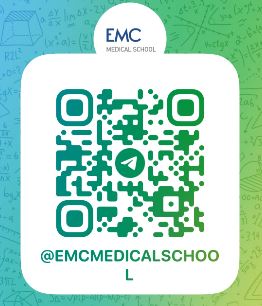Gastroenterology School
Gastroenterology School was established with the support of EMC Medical School and the European Medical Center.
The main objectives of the EMC Gastroenterology School are advanced training of therapists, gastroenterologists, hepatologists, general practitioners, pediatricians, as well as development of the medical care system in these areas and the development of the gastroenterology school in Russia.
The activities of the Gastroenterology School focus on the improvement of professional competencies and skill level of doctors by organizing educational and research activities, publication of reviewed scientific articles, guides of clinical practice, manuals and monographs, preparation of distance learning programs, distribution of professional medical information through the educational resources of the Internet.
The main areas of study of the Gastroenterology School:
- Diagnosis of the digestive system diseases.
- Curative and preventive methods in the treatment of gastrointestinal diseases.
- Diseases of the esophagus, stomach and duodenum.
- Bowel diseases.
- Diseases of the liver and biliary system.
- Pancreatic diseases.
- Hepatological oncology.
- Chronic viral hepatitis B and C.
- Pathology specifics of the gastrointestinal tract in childhood.
- Inherited liver diseases.
Goals of the Gastroenterology School:
- Most urgent scientific and practical information for physicians, gastroenterologists, hepatologists and other doctors about the etiology, pathogenesis, methods of prevention, diagnosis and treatment of diseases of the digestive system.
- Data exchange of progressive developments in gastroenterology with the professional community of physicians, gastroenterologists and other medical professionals.
- Informing students about the leading achievements of the "Western" medicine (Western Europe, USA, Israel and others) in gastroenterology.
- Extramural event for students of the Gastroenterology School in different cities of Russia.
- Participation in conferences on gastroenterology of different levels: from regional to international.
- Education and support of gastroenterologists and other medical professionals.
Target audience of the Gastroenterology School:
- therapists,
- general practitioners,
- pediatricians,
- gastroenterologists,
- medical residents and researchers at the Departments of Gastroenterology,
- infectiologist,
- hepatologists.
The Gastroenterology School program goal is professional development of medical knowledge and improvement of practical skills of general practitioners and narrowly focused specialist. Our training course will help students to raise their medical practical skills up to modern quality standards.
Expected results
Competence and quality increase of physicians, gastroenterologists and other specialists involved in the pathology of the gastrointestinal tract.
Training programs will be based on the latest information in gastroenterology and innovative educational technologies.
Formes of study of the Gastroenterology School:
- Extramural event: lectures, seminars.
- Lectures.
- Clinical reviews.
- Educational seminars, which include lectures and analysis of clinical cases.
- Master classes - express courses on the most relevant areas. Short training sessions (one day).
- Distant learning programs, including online training courses, webinars, online lectures.
- At the end of the course students will gain an access to all training materials (lectures, presentations, videos).
Lecturers of Gastroenterology School
Program Supervisor of the EMC Gastroenterology School is Polunina Tatiana – gastroenterologist, hepatologist, MD, professor of MSMSU, a member of the European Association of Gastroenterology (UEGW) and the European Association for the Study of the Liver (EASL), a member of the Board of the Russian Scientific Medical Society of Physicians.
Russian and foreign experts in gastroenterology participate in courses of the Gastroenterology School. Practitioners of the EMC Division of Gastroenterology and specialists of other related Divisions (as part of interdisciplinary courses).






